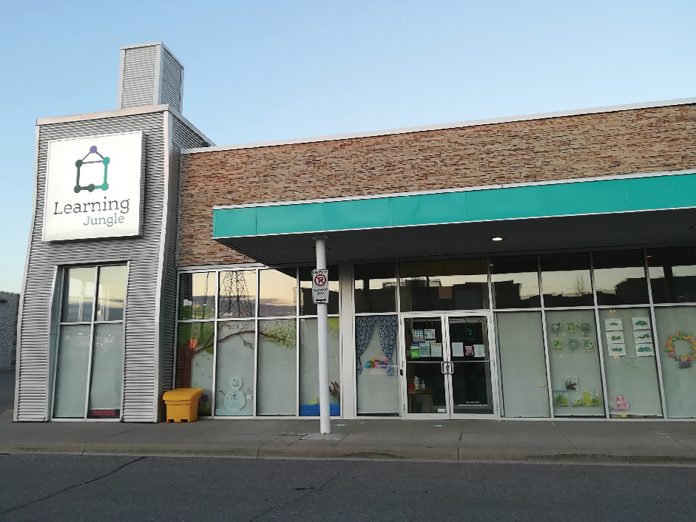The childcare industry has only just started to recover from the pandemic shutdown that lasted from April to June of 2020.
Since the reopening of childcare centres, and with Early Childhood Education students switching to online learning, the industry’s future appears uncertain, but hopeful.
“We’ve had to change all of the rules,” said Jane McClymont, a childcare worker at the Learning Jungle daycare in Whitby.
According to McClymont, the moment the Learning Jungle reopened from lockdown, it introduced a COVID-19 policy involving face masks, face shields and cleaning schedules.
Even with the new policies, she said only a third of their customer based returned at the time of their reopening.
Now, more of their regulars have returned but the policies are still in effect.
“There’s a lot more cleaning with the new policy,” said McClymont referring to her staff, “but they still have to do the job they have to do.”
She and her co-workers do all their work to make it possible for things to be as normal as things can be for the children.
“They don’t really see anything different, and it doesn’t affect them in anyway,” she said. “It hasn’t changed the quality in any way, we are just doing more.”
Learning Jungle has not had a COVID case to date, and she said the quality of care has not declined in that time.
This work has created more challenges for workers, however. When she tried to hire a new staff member during the pandemic, more than half of invitees did not respond. When it was time to conduct an interview, McClymont conducted the tour virtually.
These changes to childcare workplaces could pose a challenge to graduating childcare students.
According to Durham College Early Childhood Education (ECE) professors, Susan Hartwell and Tracey Hull-Gosse, students have had to deal with more challenges to meet their learning goals.
“They will meet the learning outcomes,” Hull-Gosse explained, “but the opportunity to go and do an on-site practicum and experiencing what its like to be in a childcare centre all day…is a loss.”
Hartwell added there is only so much you can learn from textbooks in a field like childcare.
“You could have a child with challenging behavior,” she said, “and the students are not getting the opportunity to work through the challenging behavior.”
According to Hartwell, future ECEs are learning the proper techniques to help guide children, but it is not the same as the practical experience.
However, the professors say that reflective practices, such as watching videos and discussing how they might respond to a particular situation, have gone well during online studies.
They said the childcare business is an understanding one. They expect that once the pandemic is over, the industry is likely to return to what it was pre-pandemic.
Supervisors in the ECE industry, such as Jane McClymont, are aware of the challenges the pandemic has posed.
Hartwell said new early childhood educators will be able to learn quickly under the mentorship of seasoned employees and, despite the challenges, students are meeting their goals in creative ways.




